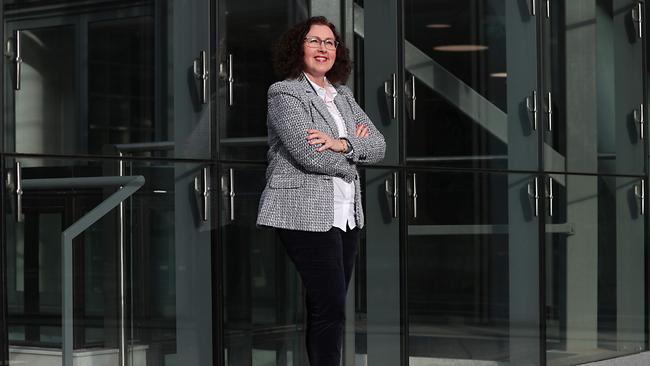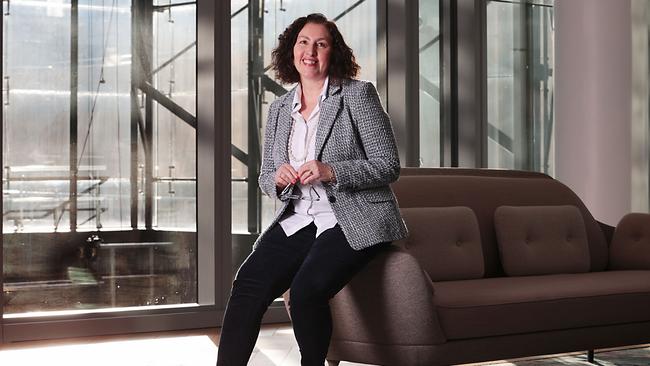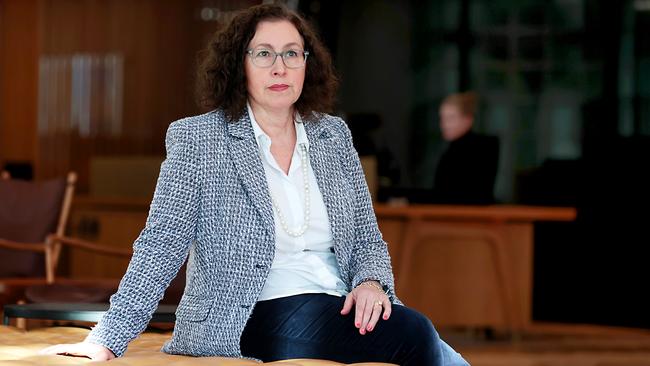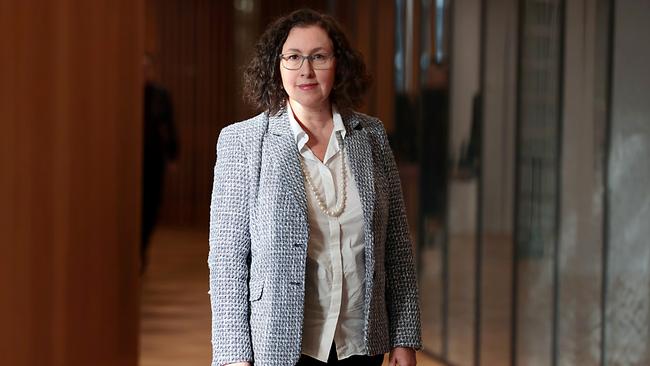Behind the scenes with veteran workplace safety lawyer Lea Constantine
Lea Constantine is the last person a mining company wants to see at their door. She’s also a leading workplace safety lawyer who’s dealt with more than 100 fatalities in her career.

She is the last person any mining or industrial company wants to see at the door of their site office.
“I get this all the time. People tell me “We really like you. We love dealing with you. But we know when we see you, things are bad,” says Lea Constantine.
“Well it is bad. But I sort of think, ‘That’s okay’. Because I know what to do. I know it might sound strange, but I like being that person in a crisis who can help.”
Constantine is one of the leading workplace safety lawyers in the country, the head of Ashurst Australia’s Workplace, Health and Safety practice.
After a 30 year career with the firm, she is now also Head of Region for Australia working with Sydney-based global CEO Paul Jenkins, and sits on Ashurst’s global Executive Team.
The most gruesome part of her daily working life is attending a worksite when there has been an accident, especially a fatality. Her clients look to her not just for legal advice, but broader emotional and strategic support.
After advising on more than 100 workplace fatalities, the mother of three children has learned to compartmentalise trauma in her mind, while doing her darnedest to be supportive, compassionate and empathetic.
“I have been in situations where families have been in conference rooms screaming about what has happened, screaming about the situation and desperate to understand. But sometimes - and this is the hard bit - we never know what happened,” she laments.
“It is actually a privilege being asked to help in those situations. Which is a weird thing for a lawyer to say. But people are bringing you in, often when they are at their absolute lowest of low.”

She says the key to workplace safety is pre-emptively sitting down with clients and talking about what they should or should not do to prevent an incident occurring in the first place.
Over the past ten years workplace health and safety law and practice has also evolved where the focus has extended from ‘on-site’ safety to broader and deeper concerns such as psycho-social risk.
Last year in NSW the five year old-Work Health and Safety Regulation regime was amended to include specific requirements around managing psycho-social risks in the same way as physical risks.
“We’ve all grown up learning how to safely work up a ladder and all of that stuff,” Constantine says.
“Now the whole jurisdiction is moving into psycho-social risks and psycho-social hazards, language that just didn’t exist five years ago. That means mental health and well-being issues, and what has given that the biggest shot in the arm ever is Covid.
”As a result boards and executive teams in need to be better informed of their responsibilities and regulatory obligations on workplace safety. The work now extends well beyond the legal.
Yet Constantine says she is constantly stunned about how few questions she gets from directors about these critical issues.
“I do a lot of work with boards. You have very senior people who are well schooled in corporations and corporate law and understand their organisations and what their responsibilities are. But I find sometimes there is a reluctance to ask all the silly questions. There’s no silly question in any of this. Because there shouldn’t be and there isn’t. It’s hard,” she says bluntly.
“If you are a director this is something to be concerned about. There are positive duties that directors and officers have. They need to take steps to exercise due diligence for safety, they’ve got to do things. So it’s not passive. We’ve moved away from this being a passive kind of field. There are proactive steps that people need to take.”
Family history
Constantine’s father was only 7 years old when he came to Australia from Cyprus with his parents in 1954.
He had a long, complicated Greek name that was simply shortened to “John” and could not speak a word of English. Four years later he contracted rheumatic fever and was forever in and out of Westmead Hospital.
Constantine’s mother also emigrated from Cyprus when she was only four.
After meeting up in Sydney as teenagers at a BP Service Station, Constantine’s parents were married when they were both 19. She was born two years later.
After attending Enmore high school, John Constantine won a Commonwealth Scholarship to study law at Sydney University and became a successful lawyer with a local legal practice in Western Sydney where his firm Constantine & Co focussed on property and conveyancing work. His wife was his secretary in the business and was the bedrock of the family.
The firm is still going today.
He was also an outstanding soccer player in his youth and played for Apia and Pan Hellenic in the old Australian National Soccer League, now known as the A-League.
But eventually the scarring of his heart valves from the rheumatic fever took its toll and he had to give up playing.

“I remember very clearly when he was 32 he had major heart surgery and had an artificial valve put in his heart, which was the consequence of the rheumatic fever all those years earlier. It was when Professor Victor Chang was a young surgeon at St. Vincent’s Hospital. Dad had a scar all the way down his chest that he always joked about, saying he was bitten by a shark,” his daughter now recalls.
“He also ticked! You could sit next to him and just hear this thing going. We always thought that was fascinating and we joked about him being the bionic man.”
John Constantine retained his passion for soccer after playing, helping establish strong representation for Australia at the Olympics and was chairman of the Australian Soccer Federation for five years.
In 1997 he was made a life member of Soccer Australia and five years later he was awarded an Order of Australia for services to football.

But health issues continued to dog him. In August 1998 he had a heart transplant and lived another 18 years - the most joyous times were with his grandchildren - before he passed away on Boxing Day 2016 at the age of 76.
His eldest daughter - he had four children - spent Christmas Day with her dying father.
“My mother would say she’d been preparing since she married him, basically, for that day. I think there had been periods of time in the lead up to the transplant where it was just like, ‘He’s not gonna make it through this week.’ But remarkably he did. So we were ready when the end came. Although its funny, it never happens in the way that you think,” Constantine says softly.
“His kidneys had failed and the side effects of the drugs that he was given at that time had lots of impacts, like giving him cataracts on his eyes. He had all kinds of things going on. But interestingly, his heart was always strong to the very end.”
She says as a sole legal practitioner in suburbia, above all else he taught her the importance of having a strong work ethic and to speak her mind.
“He said a lot of things to me,” she says.
“But I probably think I’ve got some of that strong will and attitude from him.”
Career decisions
Working in the law wasn’t Constantine first career choice.
Being in year 10 at school in 1983 when Bob Hawke’s Labor government swept to power, she developed an interest in public policy so initially studied arts at Sydney University.
But Hawke’s landmark industrial relations reforms over the following years gave her an interest in the topic, so she enrolled in a law degree focussing on employment and industrial relations law.
Then came a confronting conversation with her father when they were discussing her following in his legal footsteps.
“So I got into law and he said to me this day ‘That is not a good profession for women. You should not do it!’. Those was his very strong words to me and I’ll never forget them,” she recalls.
“Of course it had exactly the opposite effect. I told him ‘You have got be joking’. His next bit of advice, which was the better advice was ‘Okay, well if you are going to do that, then don’t do what I’ve done. Don’t become a sole practitioner in the suburbs doing people’s wills and what have you. You need to specialise, pick an area and just do that and be really good at that’.”
Her father’s advice led Constantine to combine her interest for industrial relations with employment law to land a role at a firm that specialised in the mix. Then it was known as Blake Dawson Waldron. Today it is Ashurst.

It took her 10 years to become a partner. During that decade of late nights and weekend work she also became a mother, having her first child Zoe when she was a Senior Associate in 2001. Then she went on maternity leave.
“This might be controversial to say, but I absolutely hated it. I hated being at home. I couldn’t stand it. My kids now know that and they just go ‘That’s so cruel of you to say’,” she says.
“But it is not a reflection on my love for my kids or anything thing like that. I just had sort of thought, ‘I’d worked so hard, I felt I was on a trajectory and I didn’t want to get off it’.”
She returned to work after just six months, she says, “because I had to”.
Asked if she felt guilty, she looks you straight in the eye and instantly replies: “No. No I didn’t.
Her husband Arthur, a chartered accountant, was at the time a senior executive in the property sector, working with Westfield and Dexus.
“Every day it was a negotiation between us about which meeting was more important. Who could leave early, who could leave late? Who had to do what? Then, of course, with the line of work that I’m in, some of that just got completely thrown out the window. Because I’ve often received a phone call to say ‘We’ve killed someone or someone has died in our workplace. Can you come down right now and help us’. Sometimes it would be literally 2am,” she says.
Six years ago Arthur quit working in property and hasn’t gone back.
His wife acknowledges his decision has undoubtedly helped her career, for which she is eternally grateful.
“When I think about what has happened over the last couple of years, the fact he has been at home and been able to do all the things needed to run a house and three kids, that has given me the opportunity to say yes to things that came my way,” she says.
She is also proud of the fact her children have grown up to be independent in mind and spirit, even if they rib her about being a “helicopter mother” at times given her passion for safety.
“They say ‘Mum, no one speaks about risk like you do.’ They always say to me, ‘You are not like everybody else. You see things that other people don’t.’ So they think that I’m prone to thinking the worst about things.”
If she had her time again, she wouldn’t change a thing about how she has balanced motherhood with a high flying legal career.
“With the way in which I’ve worked and done all the things that I’ve done, I’m very involved in my kid’s lives, in all their decision making, in everything that they’ve done and everything that they want to do,” she declares proudly.
“So I don’t think that either they or I have missed out.”





To join the conversation, please log in. Don't have an account? Register
Join the conversation, you are commenting as Logout